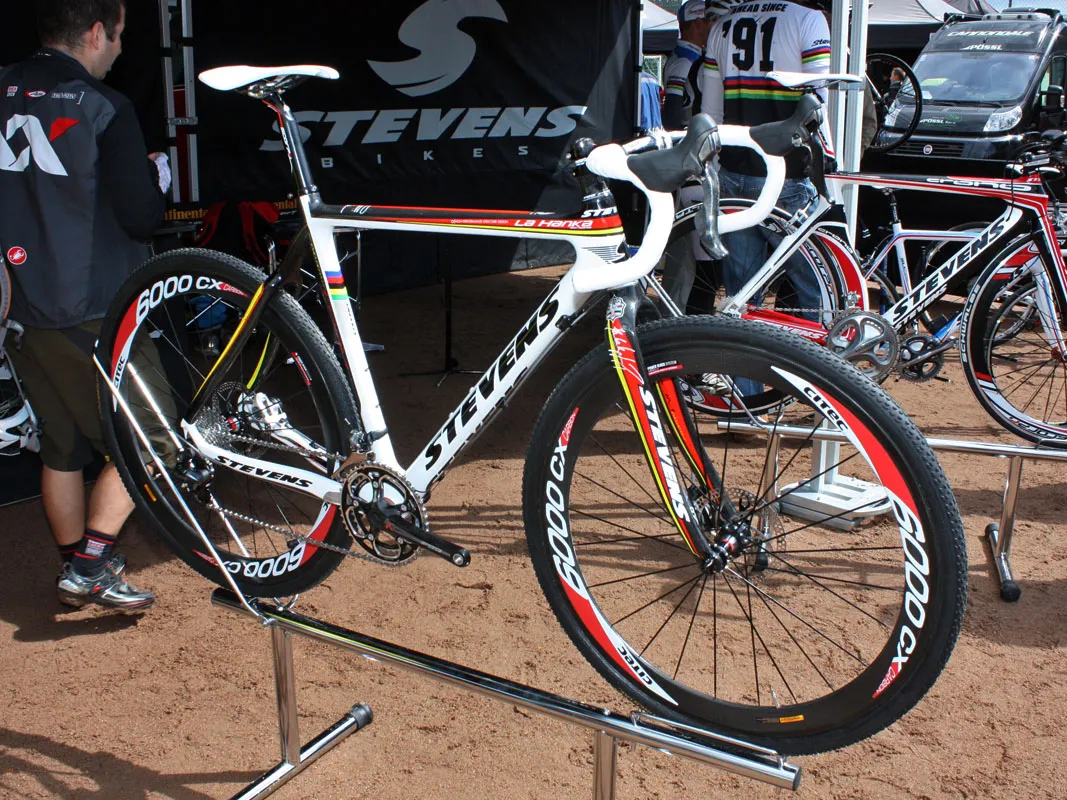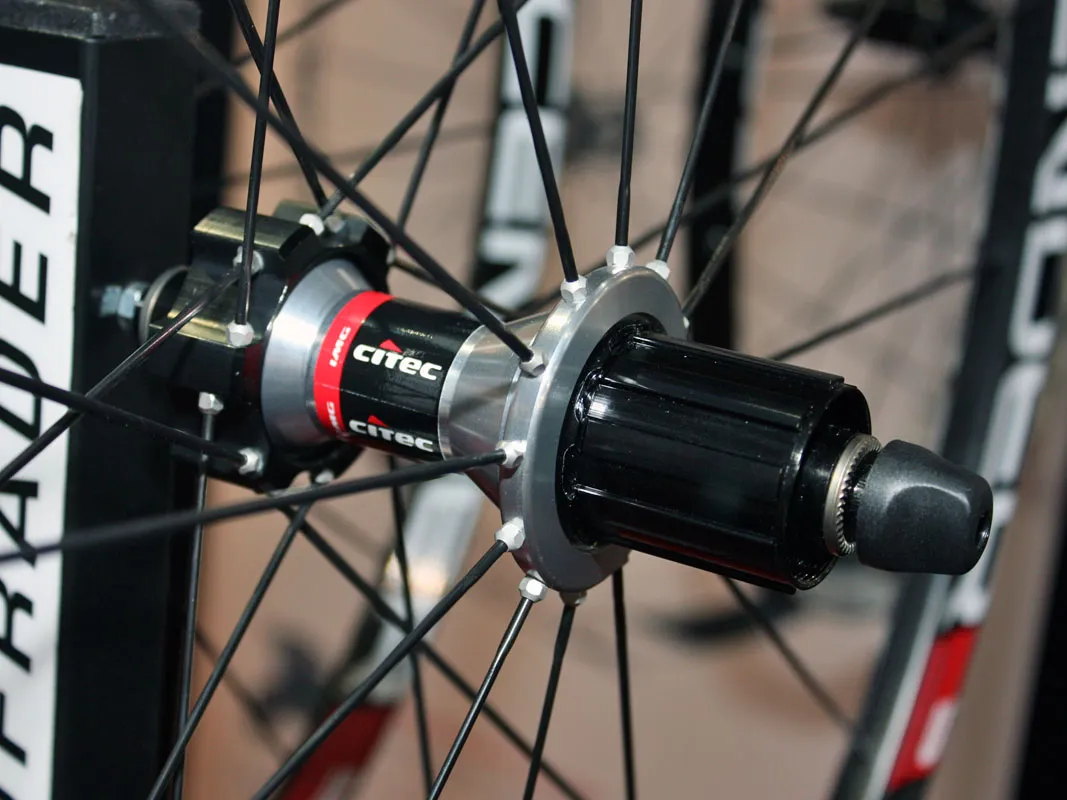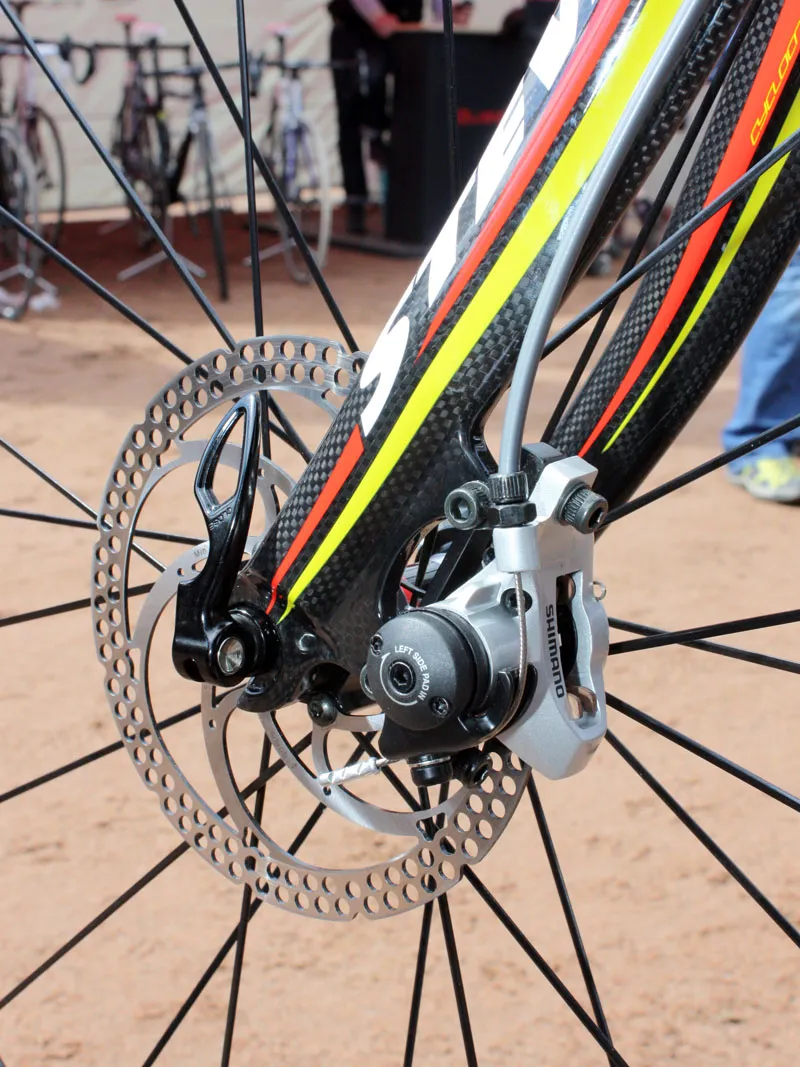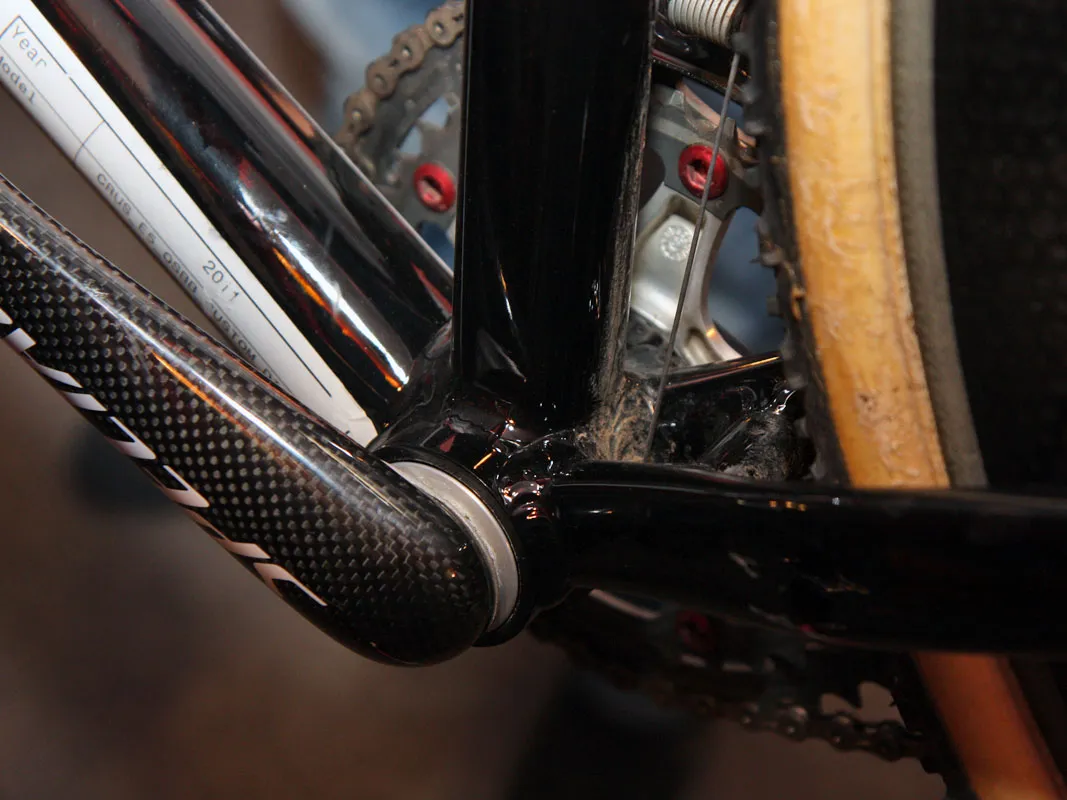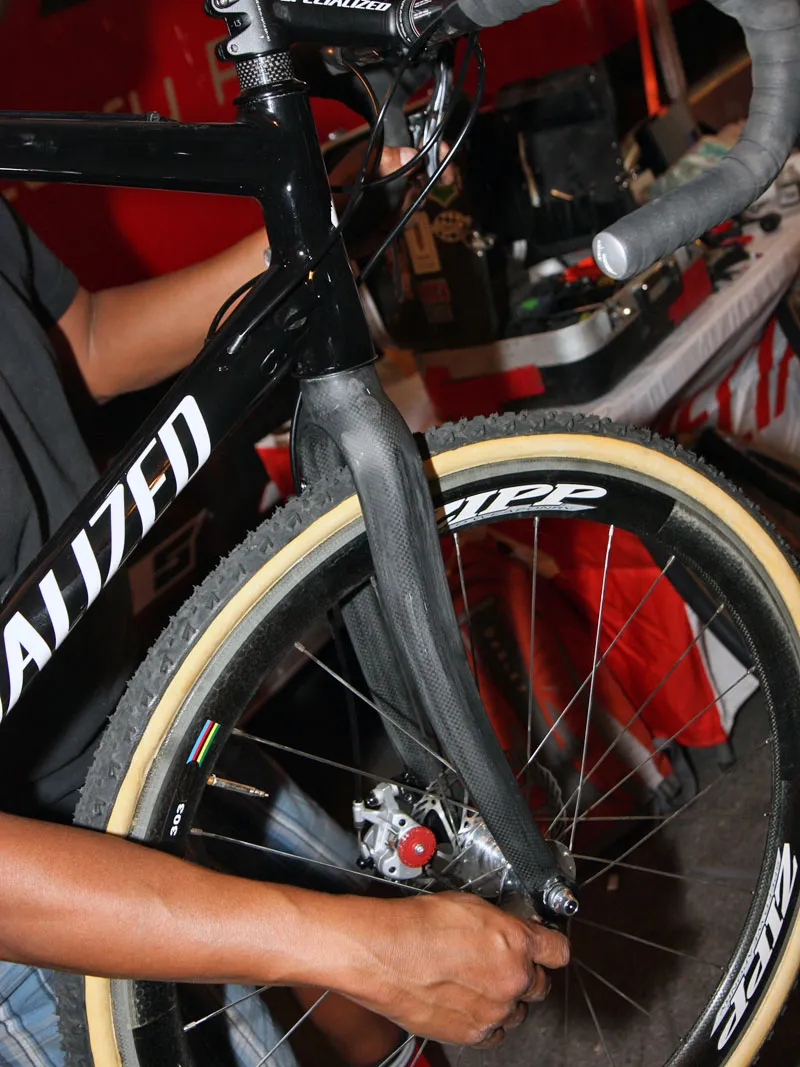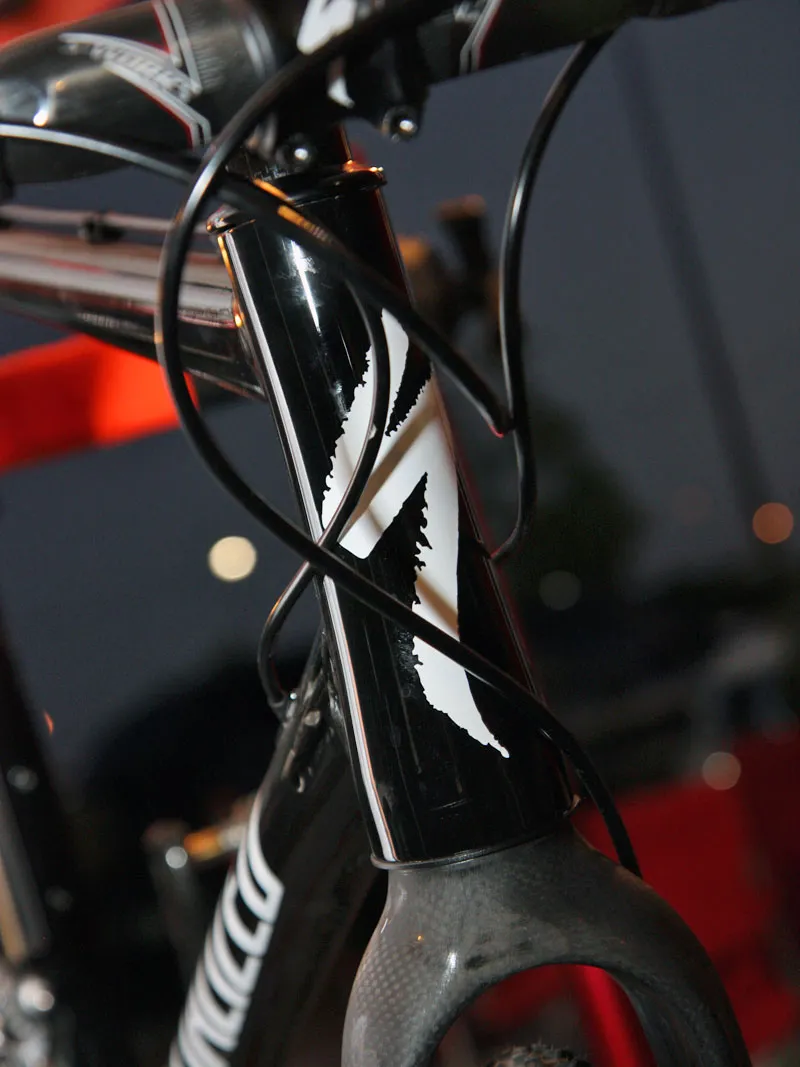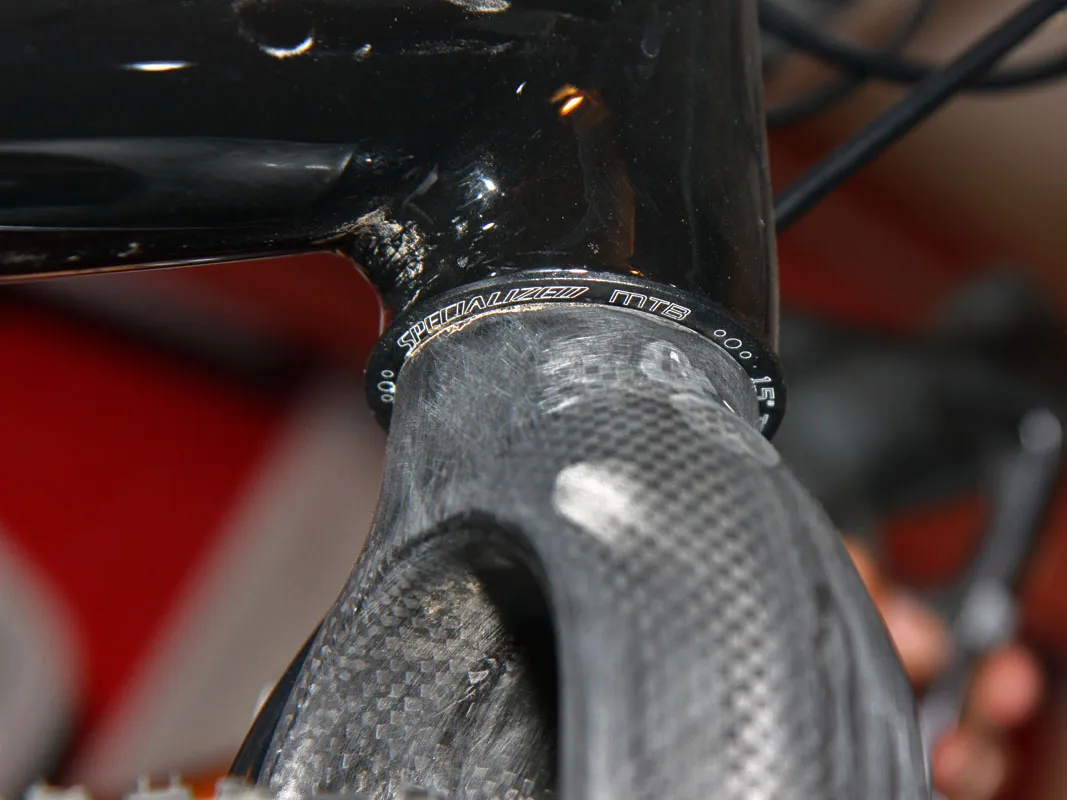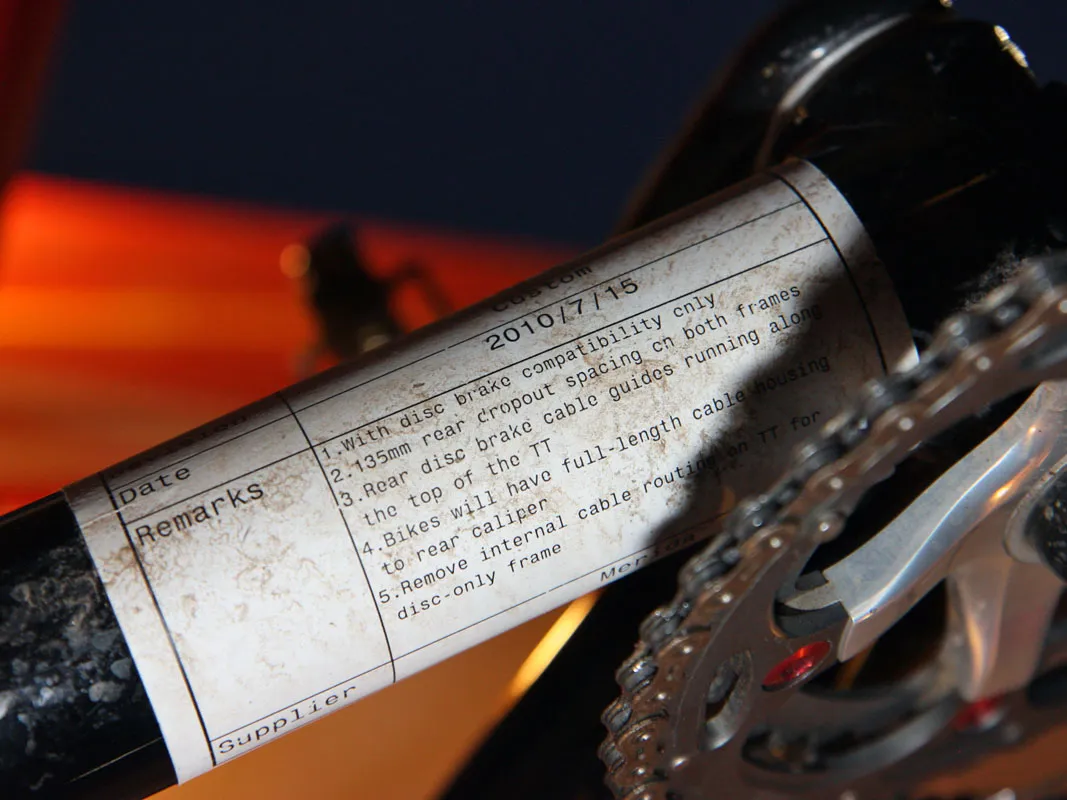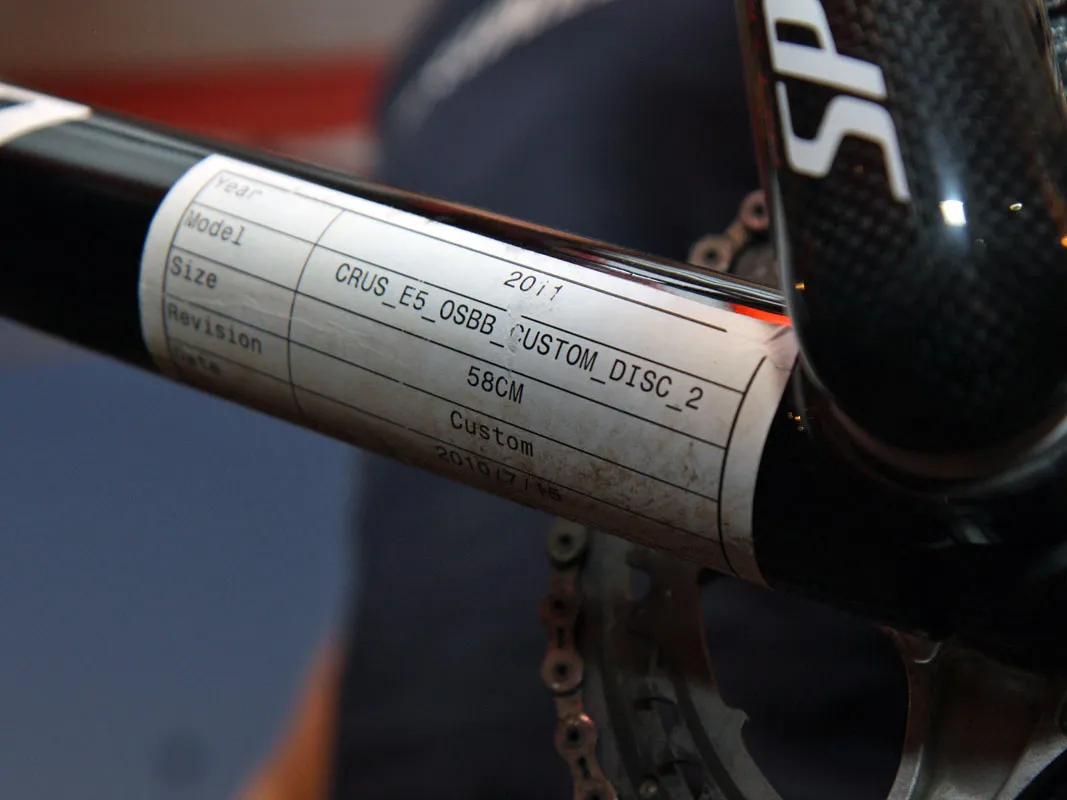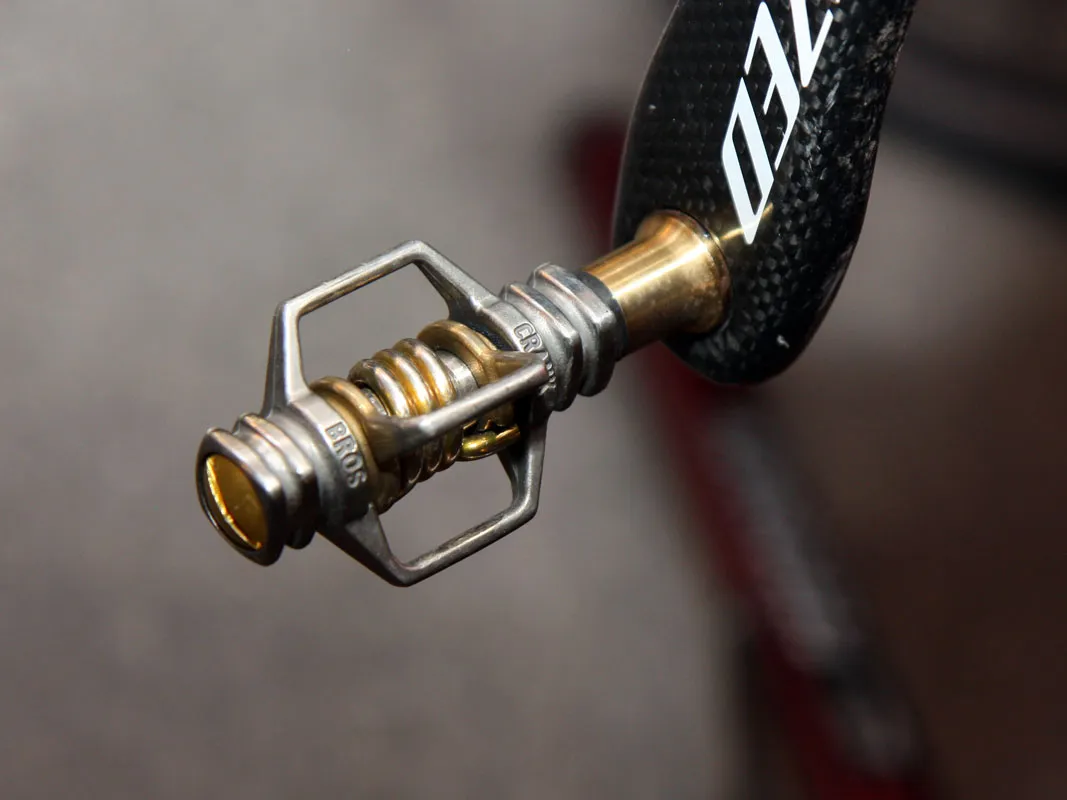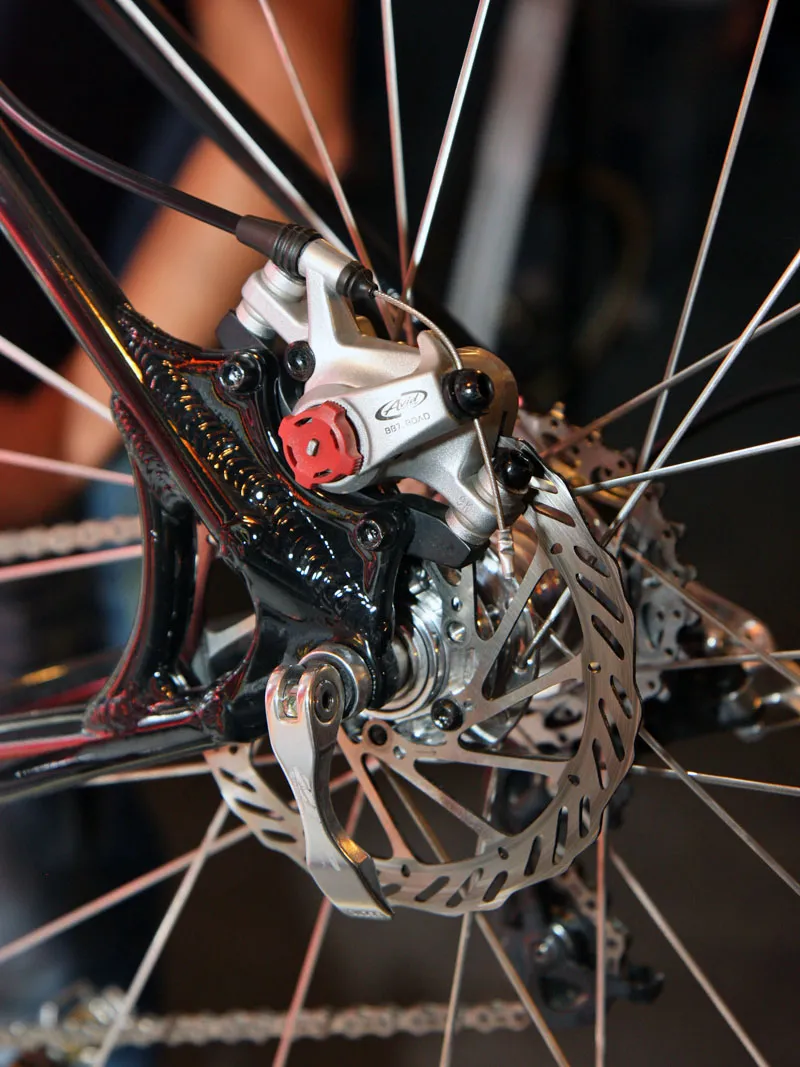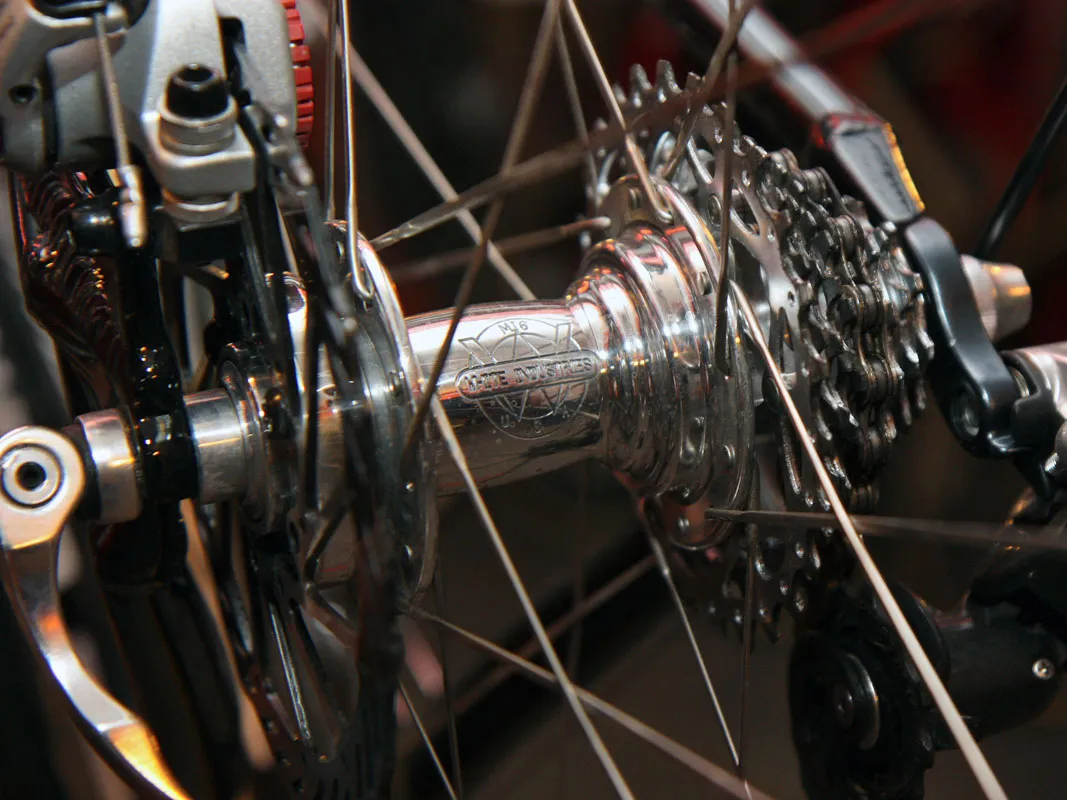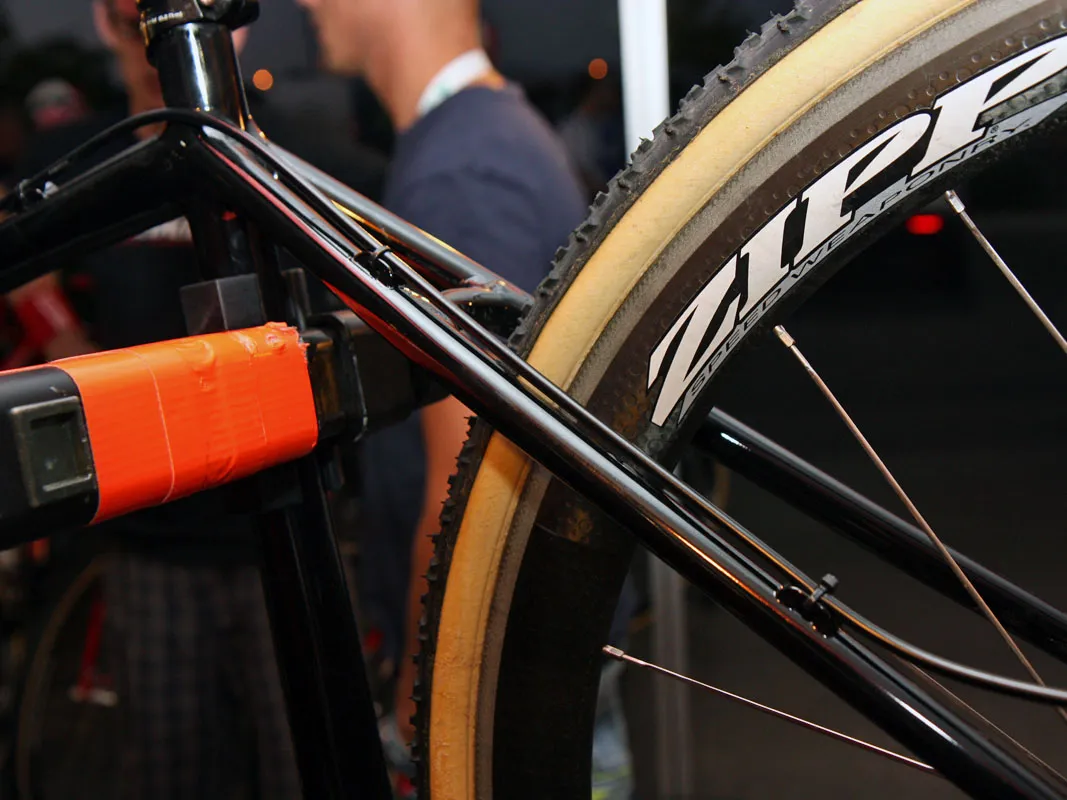The UCI's recent lifting of the ban on disc brakes in cyclo-cross has been widely heralded as a step forward for the sport, finally allowing a critical piece of equipment to advance past what is essentially decades-old technology.
The move from rim to disc brakes has already changed the landscape for mountain biking and 'cross riders – especially racers – stand to make similar gains, namely:
- Braking performance – both in terms of power and modulation – will improve dramatically, especially in adverse conditions where even the best rim brakes can become virtually inoperable.
- Mud clearance will become less of an issue. By moving the brake hardware away from the rim, bikes are less apt to clog up with debris.
- Bike weights could potentially decrease. Even when factoring in a disc rotor, 'cross bikes' lower braking demands should make for smaller and lighter hardware than on mountain bikes plus even lighter rims than currently available.
- Fewer pit stops will be needed during muddy races.
- Out-of-true rims will no longer mean the end of your race.
Unfortunately, when the news broke in June, much of the industry was caught off guard. 2011 model year bikes were already planned (and even shipping in some cases) and not only do virtually all of them have old-school cantilever brakes fitted, most don't even have disc tabs.
That being said, there are definite signs that the industry is working hard to catch up, both on the consumer and sporting sides. A case in point is Specialized Factory Racing rider Todd Wells.
He recently took delivery of two custom-built alloy CruX frames, complete with rear disc tabs, dedicated cable routing, disc-compatible Ritchey carbon forks borrowed from the company's mountain bike range, Avid BB7 mechanical calipers and handbuilt wheels using White Industries mountain bike hubs.
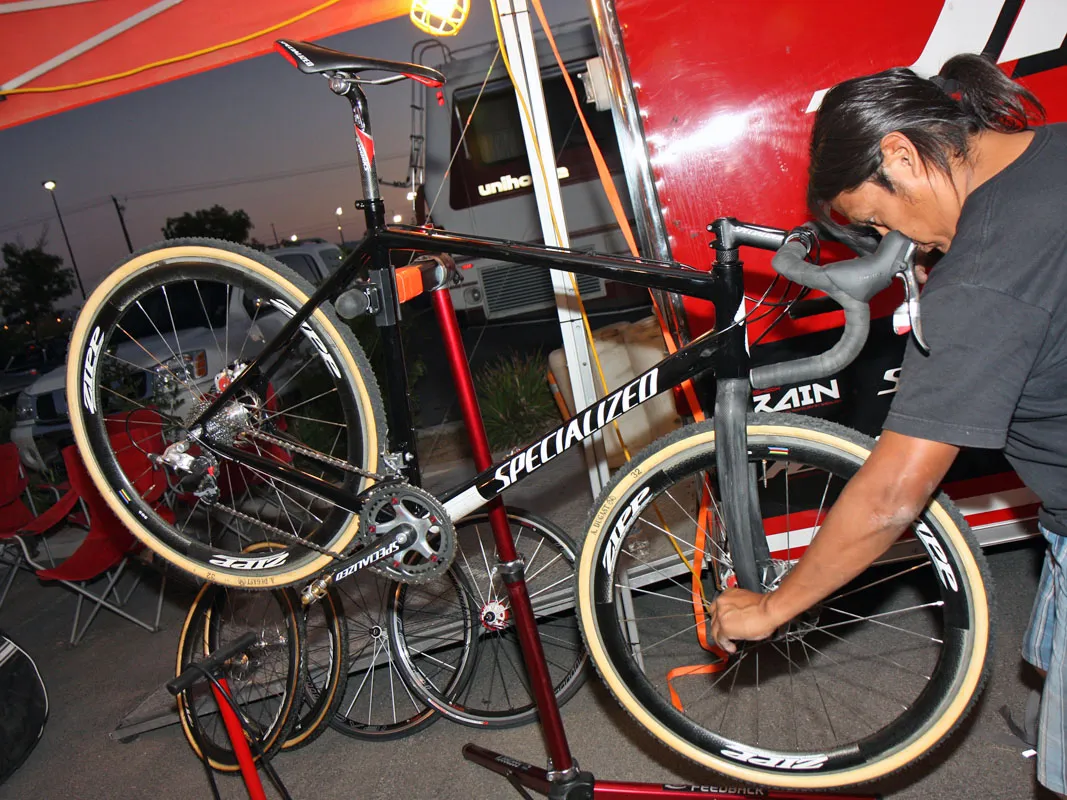
Todd Wells decided to use his regular machine at CrossVegas but it sounds like we'll see him on this custom disc-brake-equipped Specialized CruX at some point this season
Wells admits that shortcomings in currently available 'cross-compatible equipment mean he's unlikely to actually use disc brakes in competition this season but he's optimistic about the concept based on his own testing sessions.
"I've trained on the disc brake bike a bit and it has some benefits," he said. "For one, trail riding is much better on a disc brake bike. Since the brakes work so well, my hands don't fatigue and I can ride down steeper downhills more comfortably. I think the disc brakes could be a benefit in mud, not just because they'll actually work but because they won't clog with grass, mud and leaves."
"Right now the cyclo-cross disc brake bike is somewhat cobbled together," he continued. "The brakes are heavy because they don't make high-end mechanical brakes right now, the rotors are too big and the rims are over engineered because they're built for rim brakes. I think in the future the disc brakes will get light and there would be no disadvantage to using them. Right now I think weight is the only deterrent."
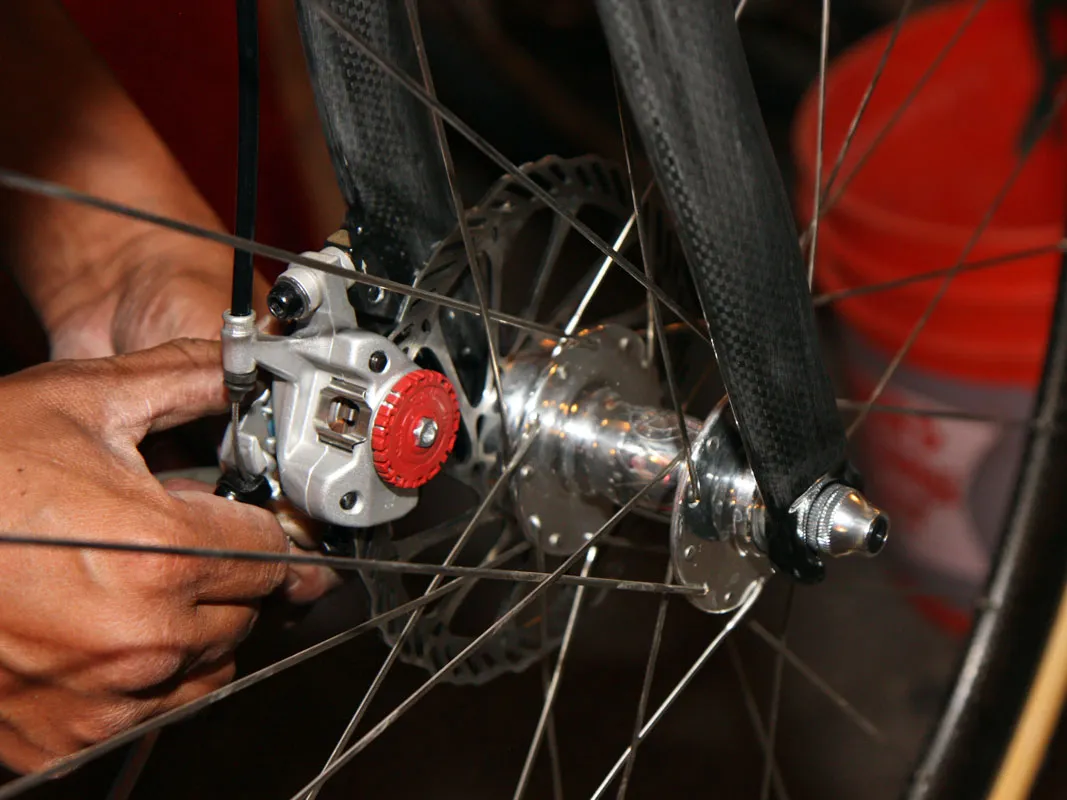
Wells' prototype Specialized features a stock Avid BB7 road caliper bolted onto a Ritchey carbon fork
Specialized wouldn’t divulge any details regarding an upcoming consumer version of Wells' bike, though. "These are just development prototypes [and] there's no plan at present to offer a disc version," said the company's Nic Sims.
"As with all the bikes like Project Black [Specialized's code name for the Roubaix SL3 road bikes piloted by their sponsored teams in this year's Paris-Roubaix], we use the athletes for feedback and development of new ideas. As for bikes next year, it's too early to make comments about next year's line when we've only just had 2011 start to arrive."
Stevens brand and marketing manager Volker Dohrmann was more forthcoming. According to Dohrmann, the German company have definite plans to offer both high-end carbon and mid-range alloy disc-equipped 'cross bikes for the 2011-12 season.
Moreover, Stevens have already prepared prototype carbon test bikes for female 'cross powerhouse Hanka Kupfernagel, including a dedicated fork, rear caliper mounts positioned in between the non-driveside chain- and seatstay, Shimano mechanical calipers and new 'cross-specific disc-compatible carbon tubulars from German wheel company Citec.
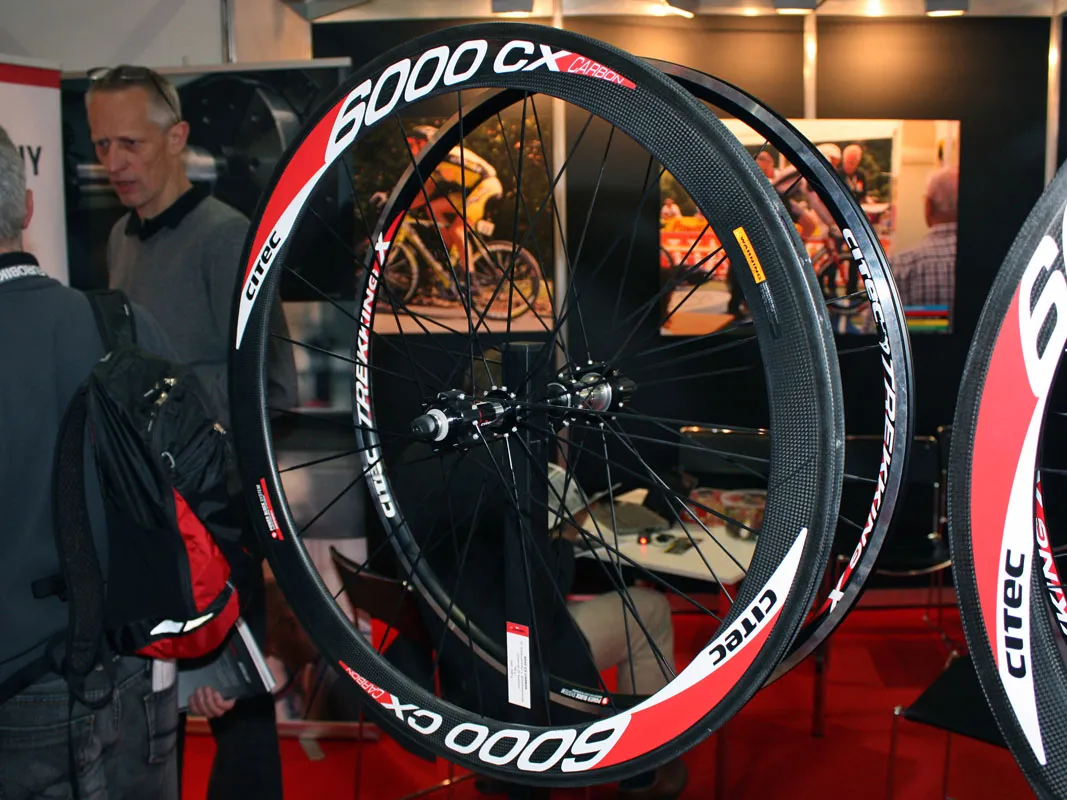
German wheel company Citec are already offering disc brake-compatible 'cross wheels with carbon tubular rims
"Hanka asked us to prepare a signature edition frame and wanted to try disc brakes," Dohrmann told us. "She always wanted to have superior braking, especially when it's wet or muddy and she's riding carbon wheels. She was never satisfied with the brake power of carbon wheels in wet conditions.
"After she heard that discs will be allowed by the UCI, she immediately was on the phone and ordered the test bike." Dohrmann added that Stevens-sponsored rider (and former UCI world champion) Niels Albert had also expressed interest in testing disc-equipped bikes.
Interestingly, some pro riders have snubbed the idea of 'cross brakes with better performance. After all, ultimate braking power will still be limited by tyre traction. However, braking control stands to make enormous gains.
For Kupfernagel and a growing number of other pros, the writing is on the wall and it's only a matter of companies such as SRAM and Shimano developing high-end, dedicated gear before the tide changes.
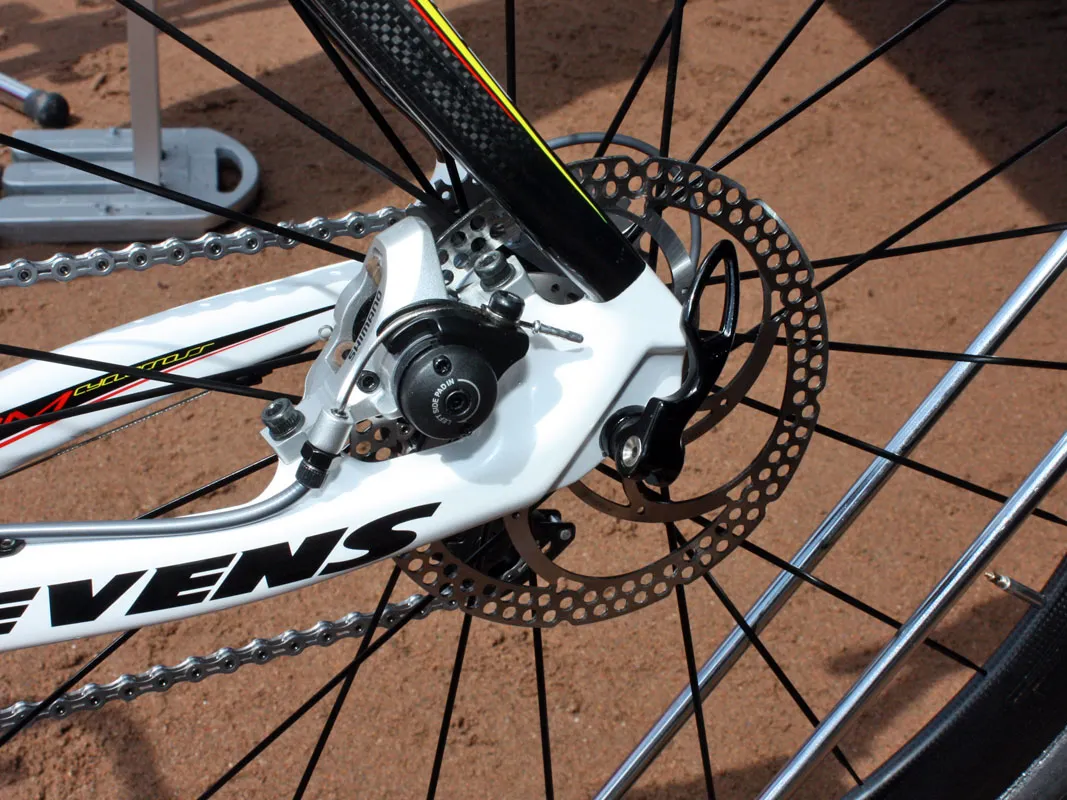
Stevens tucked the rear caliper in between the stays on Hanka Kupfernagel's (Team Itera-Stevens) prototype 'cross machine
"Talking to several professional riders, they can live with the brake power of the cantis," said Dohrmann. "Only in case very nice hydraulic systems are on the market will they consider discs. At this time, we see some benefits of discs, but also some shortcomings.
"One is the overall system weight and another one the availability of disc wheelsets. The biggest issue is the availability of hydraulic disc brakes. We've tested mechanical Shimano and Avid versions but the big goal would be to have a high-end hydraulic disc like Shimano XTR."
Dohrmann says the company are also considering using a mechanical-to-hydraulic converter – presumably from German company Tr!ckstuff – for their team riders to yield better power, modulation and lever feel relative to pure mechanical systems.
While Dohrmann acknowledges the under-stem add-on isn't a perfect solution – nor is it likely suitable for mass production – it may still deliver the performance his team riders demand until more refined options present themselves.

Tr!ckstuff showed off this mechanical-to-hydraulic converter at Eurobike. It allows for lighter and more powerful hydraulic disc calipers to work with traditional road levers
In the meantime, are consumers simply stuck with waiting around for new products to be developed? Yes and no – it all depends on your expectations regarding weight and performance.
Aside from the custom frames Specialized and Stevens (and likely others) have built for their riders, the other bits are readily available as long as you're willing to put up with a few extra grams while frame and component manufacturers come up to speed.
One thing is certain, though: bike companies will come up to speed here and it's just a matter of time before the landscape of cyclo-cross sees a dramatic change.
